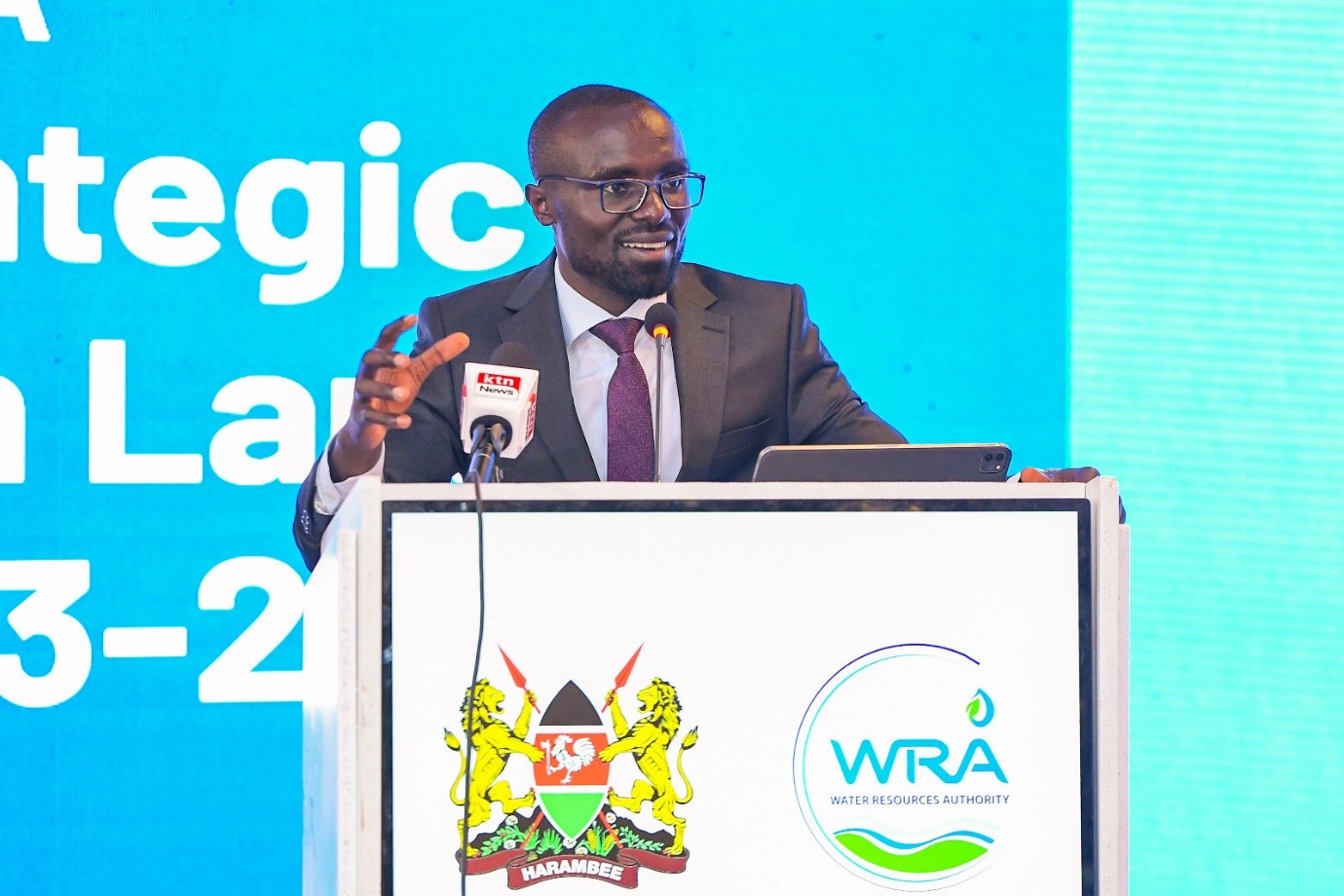Authority unveils Sh30b plan to improve water access in next five years
JOAN OGOLLA AND MANU MUMBA-KNA
The Water Resources Authority (WRA) has unveiled a Sh30 billion plan to accelerate water regulation in a bid to improve access to the scarce commodity over the next five years.
Speaking during the launch of the Authority’s strategic plan in Nairobi, Cabinet Secretary for the Ministry of Water, Sanitation and Irrigation Eng. Eric Mugaa stated that the plan aims to regulate the management and use of water resources for prosperity.
“The plan is aligned with Kenya’s Vision 2030 and the Bottom-Up Economic Transformation Agenda, as it seeks to address issues such as compliance with water resources laws, climate change integration, stakeholder partnerships, and resource mobilization,” Eng. Mugaa said.
He pointed out that the plan’s objectives are to operationalize and maintain water resource information gathering, strengthen water planning and allocation, enhance the institutional capacity of WRA, and improve the conservation of water catchment areas.
Eng. Mugaa stated that the plan would steer WRA towards achieving its goals over the next five years. “A strategic plan is a blueprint aimed at prioritizing what is key and essential for the prosperity of the future generation,” he said.
The CS further revealed that the plan entails key points such as the digitization of services and the promotion of real-time data to monitor and analyze areas prone to flooding.
The CS called for collaboration from development partners to not only support WRA but also the entire ministry in terms of development and water regulation.
“When water leaves our custody, it is directed to other agencies that deal with dams and service delivery up to the county level and so if WRA fails in its mandate, the entire chain fails,” he emphasized.
In his remarks, the Principal Secretary State Department of Water and Irrigation Julius Korir mentioned that WRA operates within the framework applied in the Water Act of 2016 that fulfils the function of prioritizing sustainable surface and groundwater development.
“WRA has achieved milestones in enhancing climate change resilience and water security,” he announced. Korir revealed that the state department contributes to national development by supporting integrated water resource management to enhance water availability and accessibility.
He noted that the water available yearly per person is 106 cubic meters per capita compared to the needed 600 cubic meters per year. “It is upon us to ensure that we have sufficient water storage available to be able to meet our clients’ needs,” he stressed.
The WRA strategic plan was developed as a sequel to the 2018 to 2022 plan. The plan comes when adverse environmental conditions including climate change and global warming have led to a drop in the underground water reserves globally.
The plan comes at a time when the Bottom-up Economic Transformation Agenda has been rolled out with an aim to boost the industrial and agricultural sectors to drive economic development in Kenya.
The agenda thus depends on water as a critical necessity, so it is crucial to enhance water resource management and regulation to ensure sustained availability and access to water for all.

